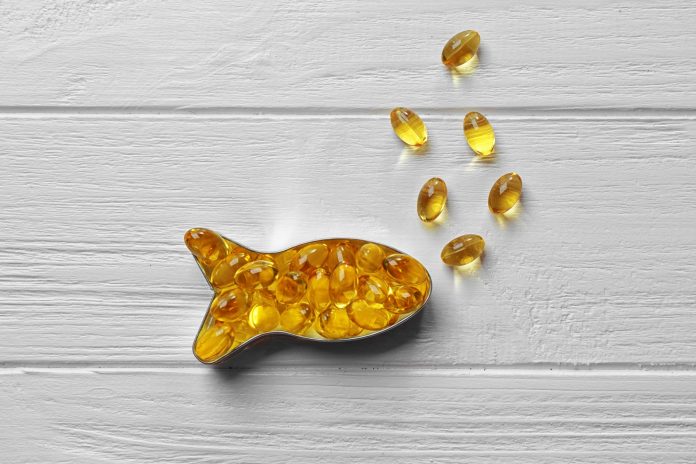Linoleic acid, omega-6 and omega-3 fatty acids are considered essential nutrients since the human body doesn’t synthesise them.
Omega-3 long-chain fatty acids can be derived from foods rich in eicosapentaenoic acid (EPA) and docosahexaenoic acid (DHA). They’re valuable in the structural elements of cell membranes and provide a good source of energy.
Benefits to health
Long-chain fatty acids (polyunsaturated fatty acids) are proven to have anti-inflammatory effects, whether consumed as part of the diet or via supplements.
DHA supplementation during pregnancy may reduce the risks of early premature birth (birth before 34 weeks gestation) and very low birth weight (less than 1.5kg).
DHA plays a central role in visual and neurological development. Omega-3 fatty acids play a critical role in the development and function of the central nervous system.
Research is continuing to establish an association between omega-3 fatty acids – alpha-linolenic acid (ALA), EPA and DHA – and major depressive disorder. Epidemiological, experimental and clinical studies have provided evidence to suggest that omega-3 fatty acids may influence vulnerability and outcome in depressive disorders.
“There’s good evidence that fatty acids support the immune system function,” said Diana Boot, pharmacist and nutritionist with Natural Chemist.
“They improve the number and function of innate and adaptive immune cells and reduce the inflammation that follows the inactivation of pathogens by immune cells.
“Omega-3 fatty acids have an anti-inflammatory effect, so are useful for those with inflammation, mood disorders, heart disease and dementia, or anyone who wants to prevent these conditions.”
Ms Boot adds that pharmacists should be asked about drug interactions with fatty acid supplementation.
Recommended intake
According to the Food and Nutrition Board of the National Academy of Medicine in the US, recommended adequate omega-6 and omega-3 intake differs between ages and genders.
- Omega-6
For adults 19 to 50 years old, men are advised to consume 17g a day, and women 12g a day. For older adults, the recommendation is 14g a day for men and 11g for women.
The recommended children’s intake, depending on age, varies between 7g and 12g daily.
- Omega-3
For adults 19 years and older, men are advised to consume 1.6g a day, while women are advised to consume 1.1g a day. Pregnant women are advised to consume 1.4g daily, and 1.3g daily when breastfeeding.
The recommended children’s intake, depending on age, varies between 0.7g and 1.2g daily.
Sources
Foods high in omega-3 include fish – particularly salmon, anchovies and sardines – and algae/seaweed; extra virgin olive oil, nuts (especially walnuts), flax seeds, flaxseed oil, and leafy vegetables.
Marine omega-3 fatty acids, derived primarily from eating fish or other seafood, can be optimally consumed through one to two seafood meals a week, particularly fatty (dark meat) fish that are richer in EPA and DHA.
Fatty acids in immune system function
A study published in the Journal of Leukocyte Biology in 2013 found that DHA- and EPA-rich fish oils enhance the function of B cells. The B cell is a type of white blood cell produced to fight pathogens and ward off disease.
Omega-3 fatty acids consumed via the diet can enhance cell function.
Immune cell membranes change when fatty acids are consumed. They strengthen the cell walls, help macrophages engulf pathogens and enable a strong immune response in the presence of a virus or bacterial invasion when consumed in adequate, recommended amounts.
“Omega 3 fatty acids can be produced in the human body from a-linolenic acid. However, this process involves many steps and occurs slowly,” Ms Boot said.
“They’re the building blocks of our cell membranes and provide a structure that’s more protective than saturated fatty acids.
“People who don’t eat fish three times a week should take a fatty acid supplement. High-quality omega-3 fatty acids are derived from small fish or marine plant-based sources, as they’re lower down the food chain and less likely to have concentrated heavy metals and other toxins from the ocean.”
References
- Essential Fatty Acids | Linus Pauling Institute | Oregon State University
- sciencedirect.com/book/9780124105270/omega-3-fatty-acids-in-brain-and-neurological-health
- sciencedirect.com/science/article/pii/B9780124105270000144
- hsph.harvard.edu/nutritionsource/what-should-you-eat/fats-and-cholesterol/types-of-fat/omega-3-fats/
- 15 omega-3-rich foods: Fish and vegetarian sources (medicalnewstoday.com)
- How Omega-3s Support Your Body’s Immune Response (bioticsresearch.com)
This feature was originally published in the May issue of Retail Pharmacy magazine.







